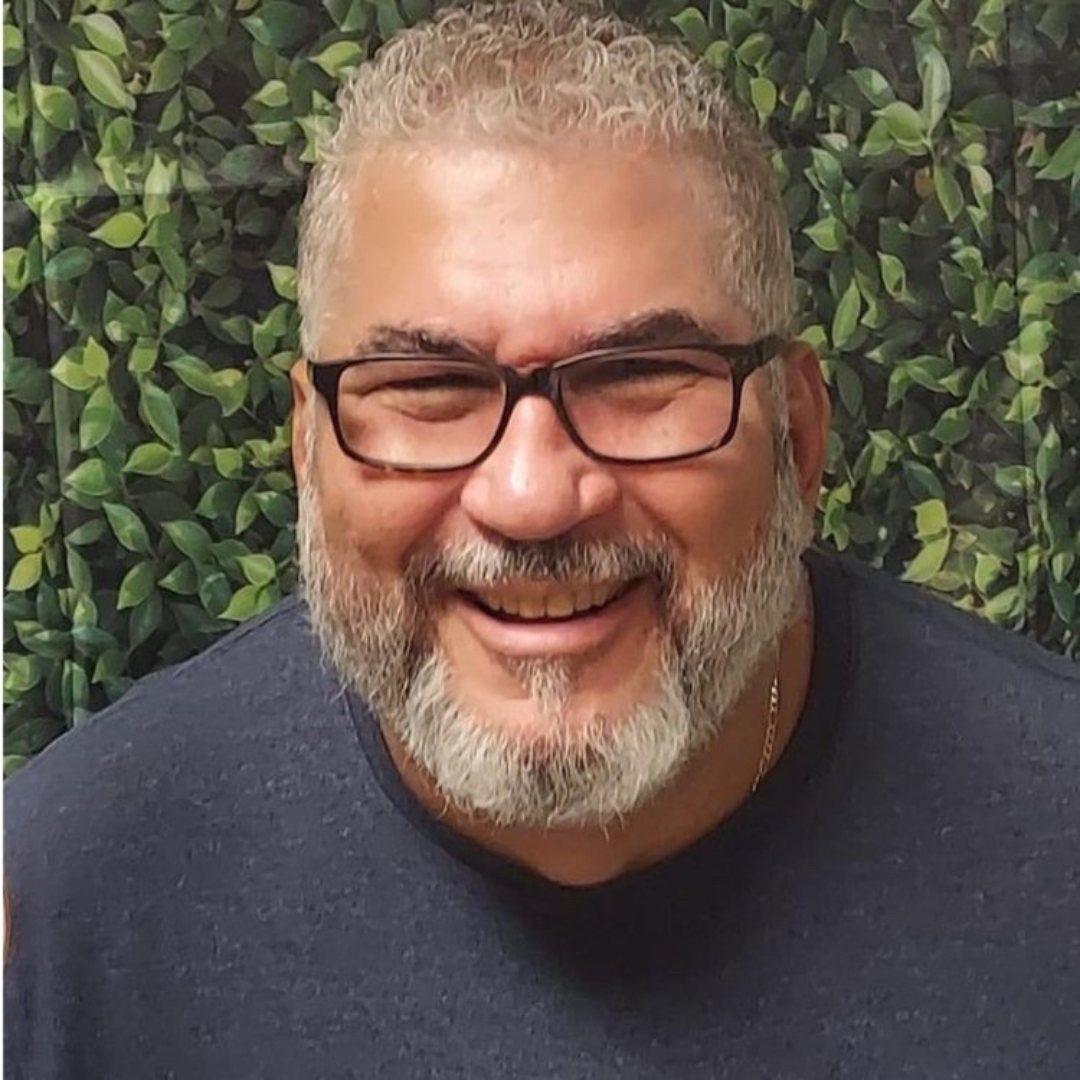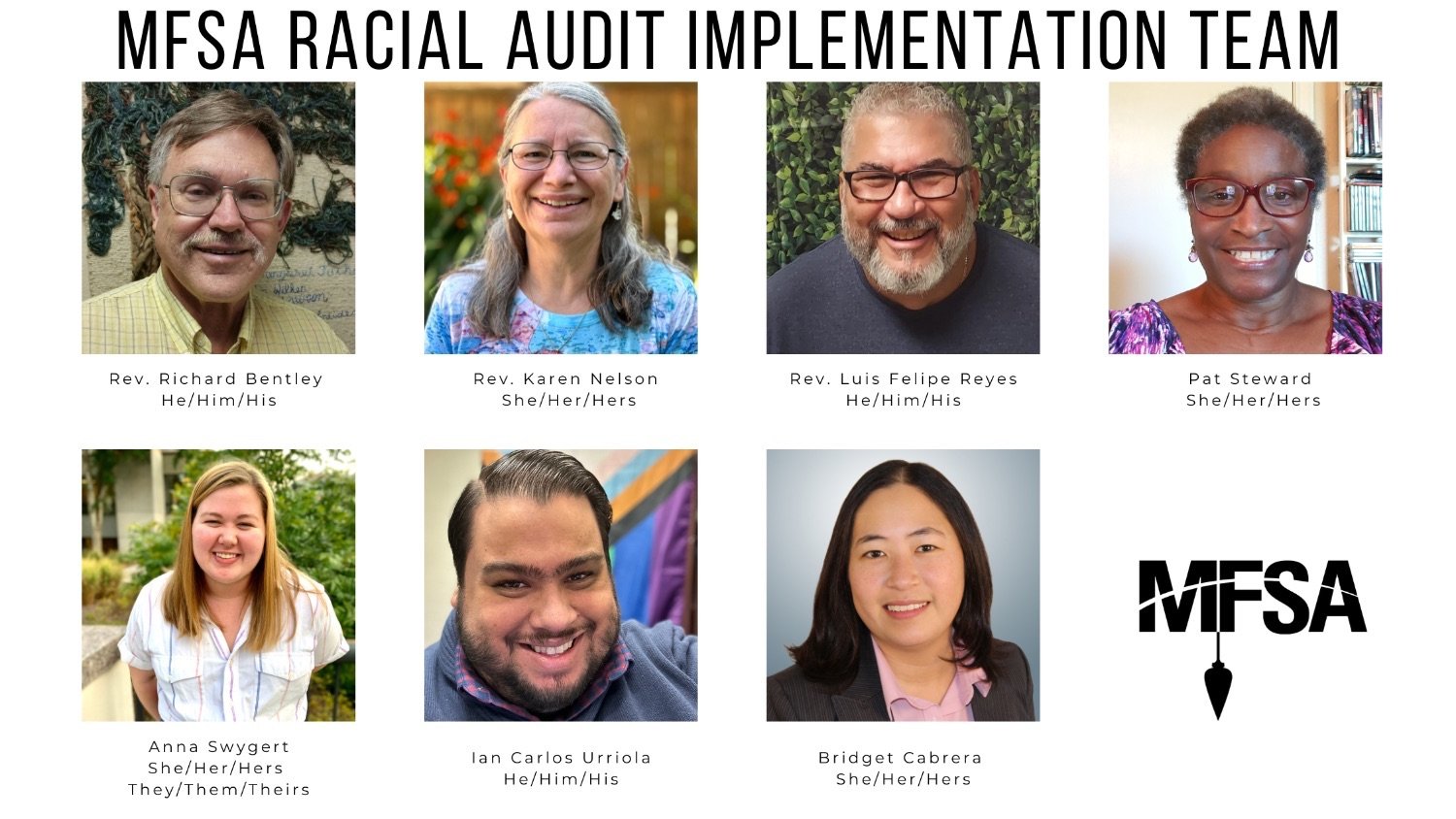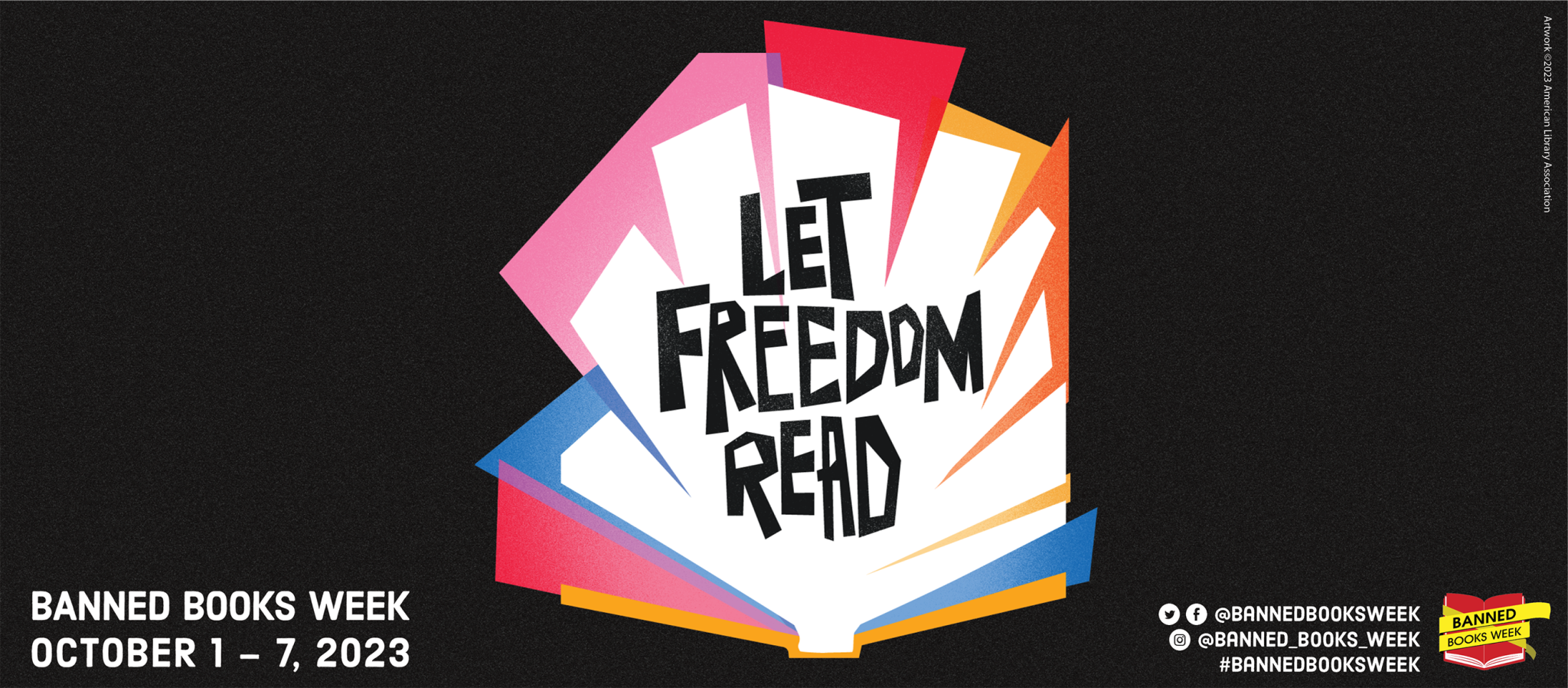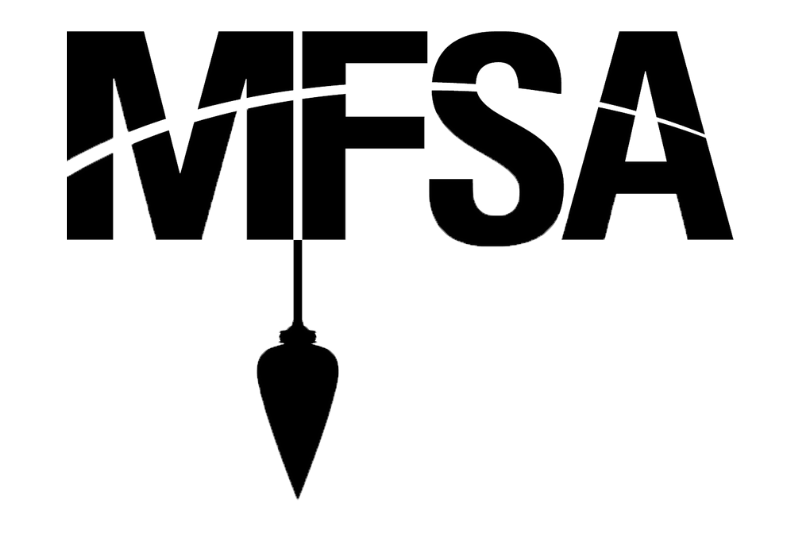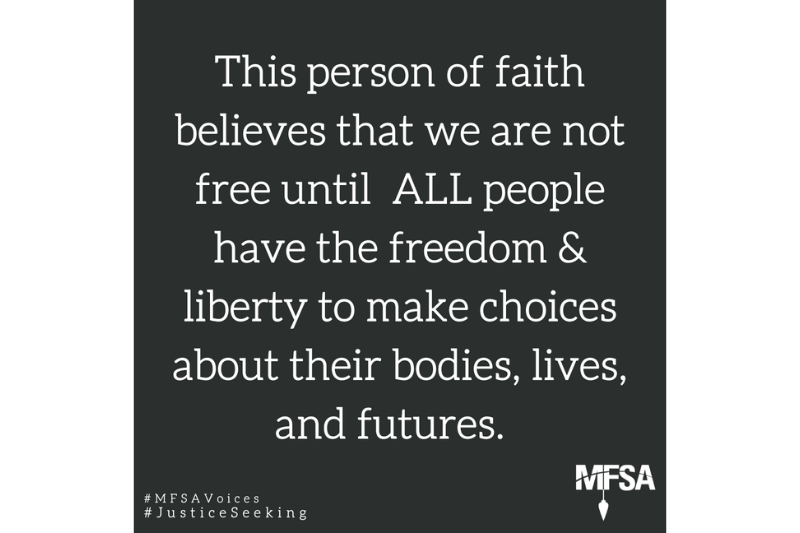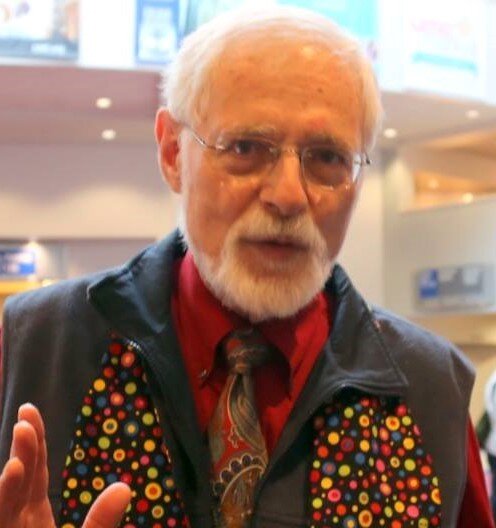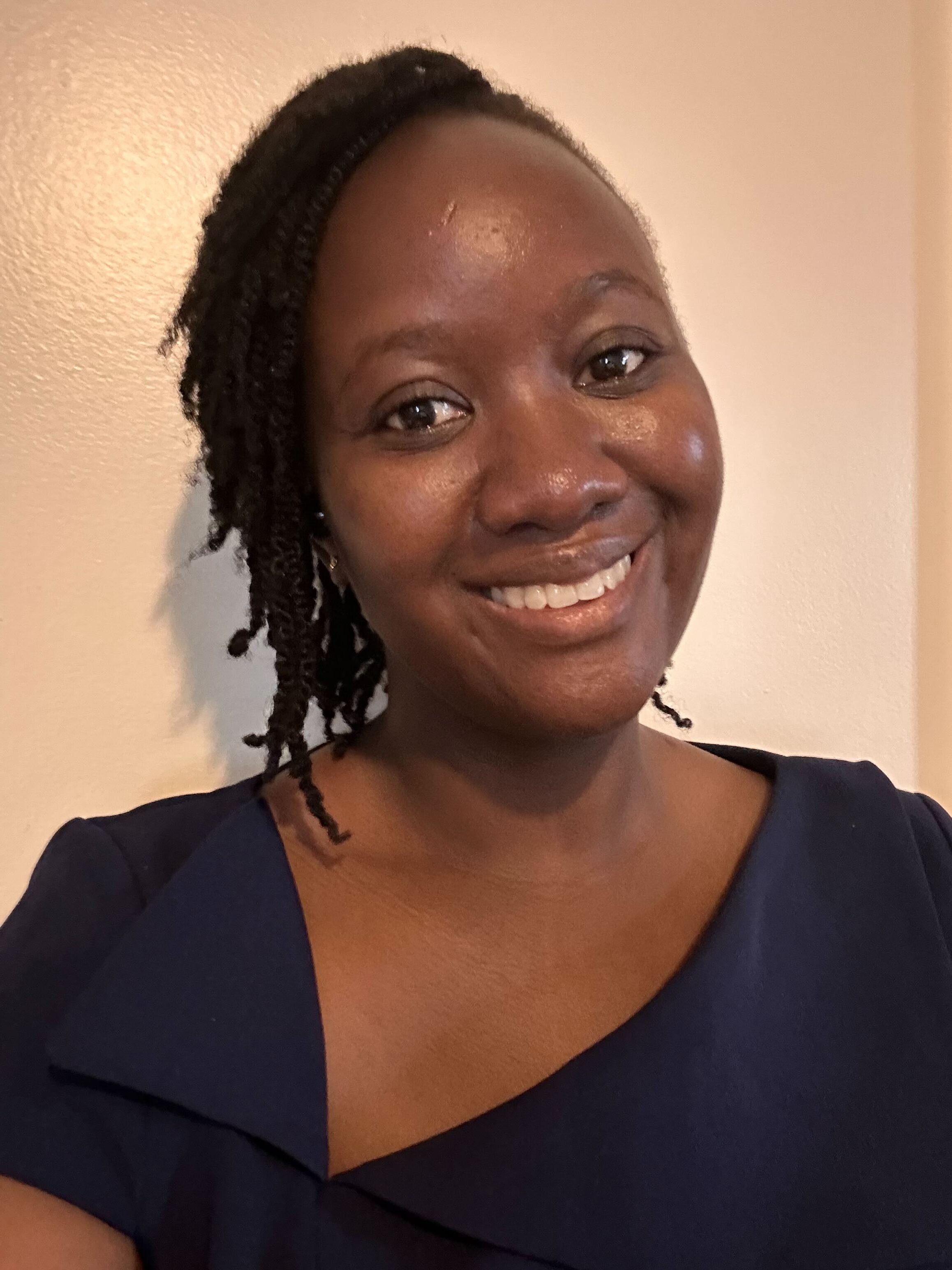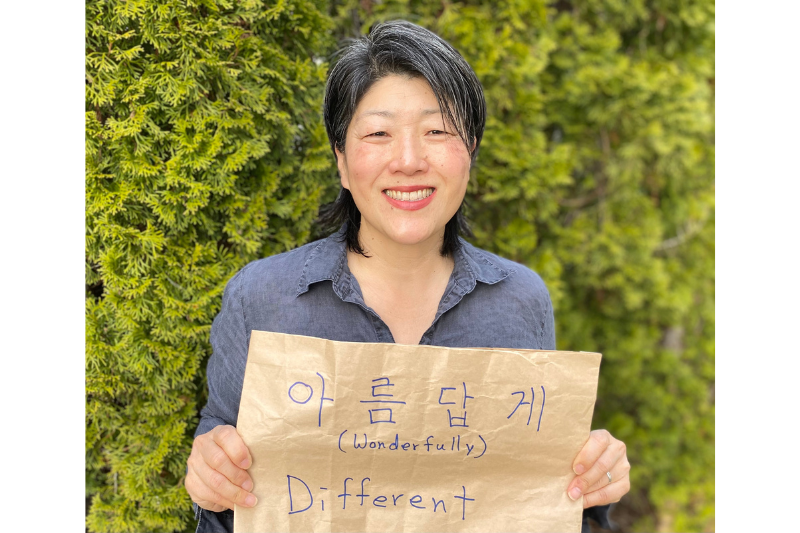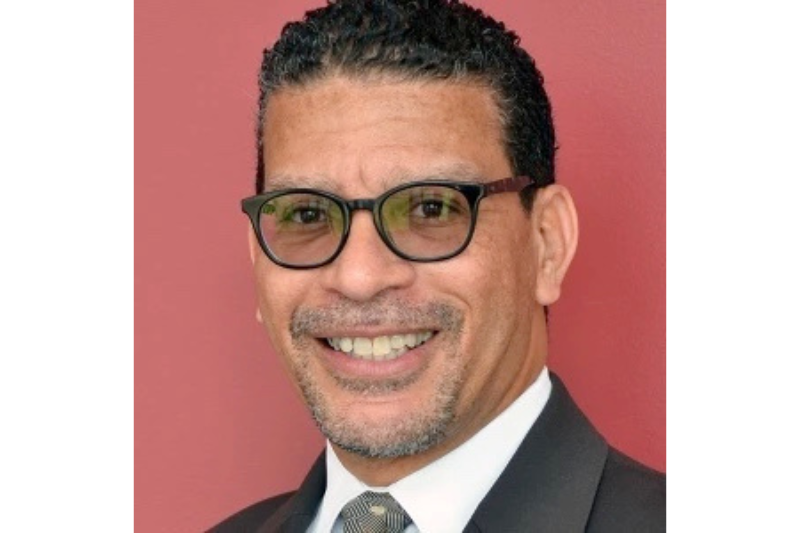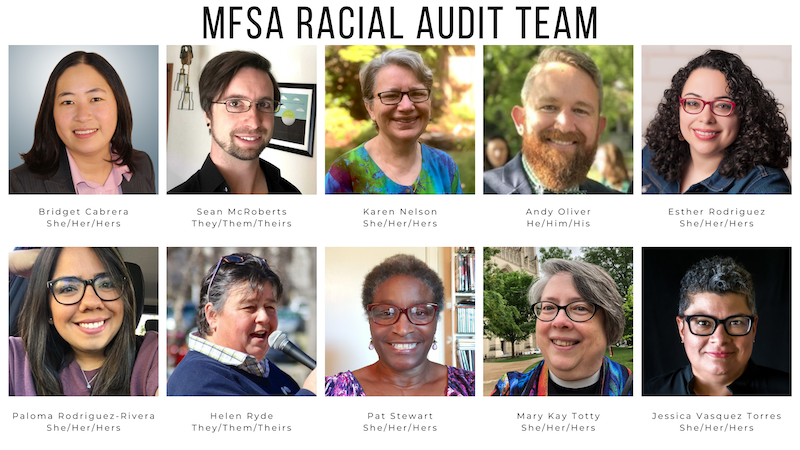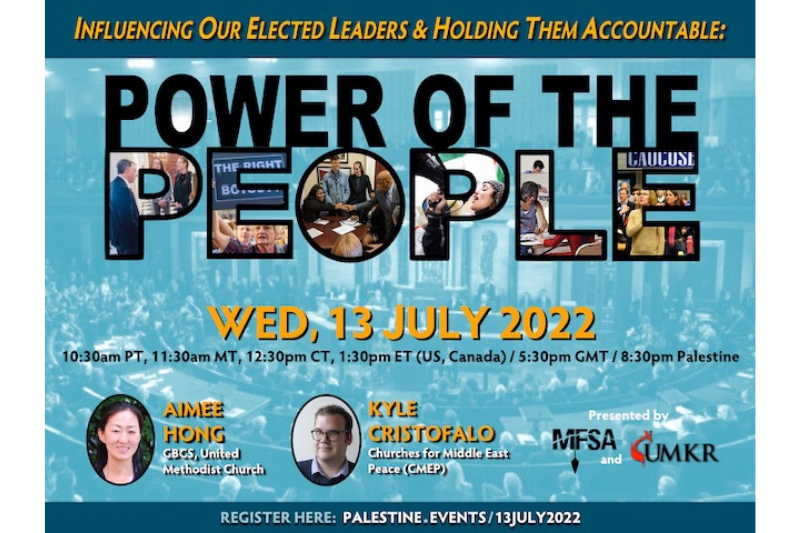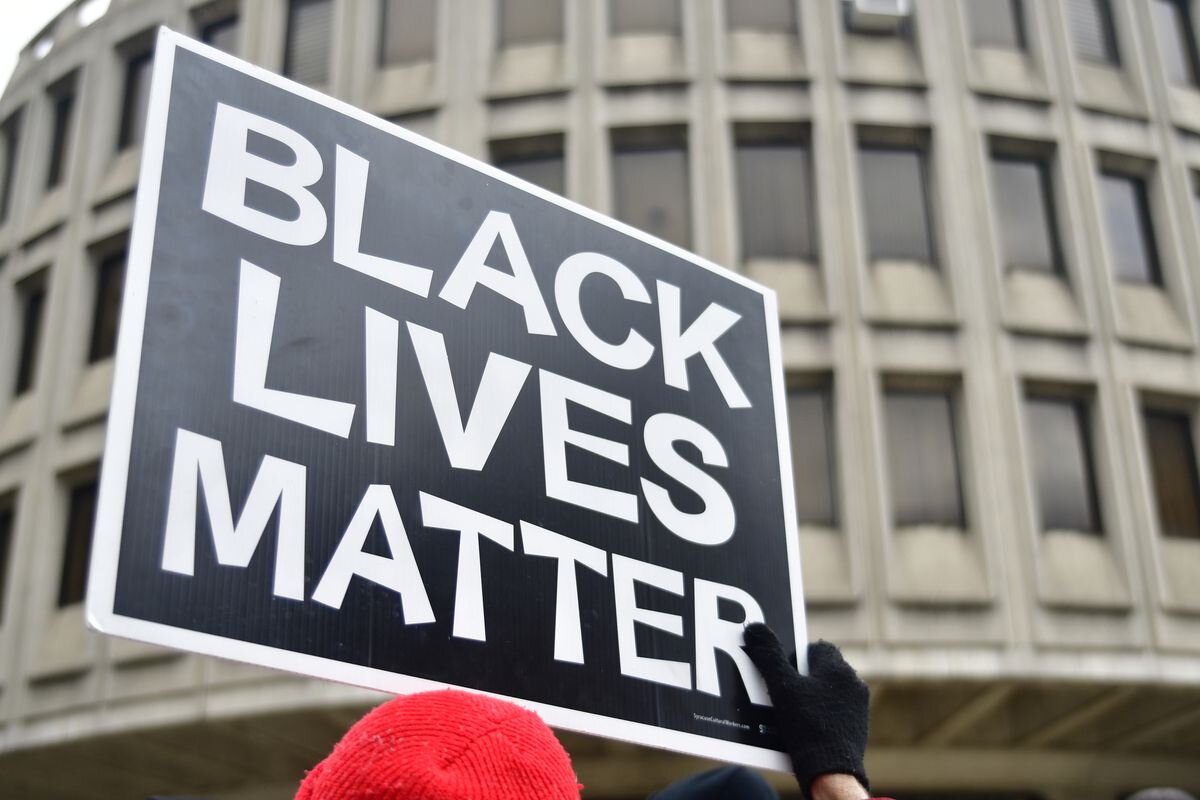
Racial Justice
MFSA is committed to dismantling the sin of racism which has been so embedded in our societies through our systems and policies. We seek to hold ourselves and each other accountable for the many ways we have centered white voices and continue to ignore the voices of communities of color.
MFSA is committed to dismantling the sin of racism which has been so embedded in our societies through our systems and policies. We seek to hold ourselves and each other accountable for the many ways we have centered white voices and continue to ignore the voices of communities of color. We seek to find ways to operationalize racial justice and racial equity in our organization, denomination, nation, and the world.
We at MFSA have engaged in serious dialogue, training, and holy confession over the past several years around systemic racism operating in our own governance and organization. We have named this as a priority for ourselves and know that we have our own work to do.
Racial Justice News
Reflection on Repentance
The MFSA Anti-Racist Audit Implementation Team has spent considerable time exploring what repentance, as an organization and institution, can and ought to look like as we seek to guide MFSA toward living into and meaningfully addressing the findings of the MFSA Anti-Racist Audit.
Reflection on Theme 1
Theme 1: MFSA prioritizes white comfort, focusing on “white saviorism” and being “the good white ones”. This behavior results in performative allyship. It commodifies and renders People of Color invisible.
As we embrace the journey of dismantling racism within the Methodist Federation for Social Action, it is clear that we have a monumental task ahead—not just in our conversations as the Racial Audit Implementation Team, but in confronting the ways our institutions, even with good intentions, have upheld the practices of the majority culture.
For too long, the church has been silent and complicit in both subtle and overt forms of racism. People have left the church because it has boldly professed that all are created in the image of God (Genesis 1:27), yet remained silent in the face of injustice. We proclaim that there is no longer slave nor free (Galatians 3:28), yet we have been complacent in systems of oppression.
The Racial Audit Implementation Team came into being almost one year ago. There are six members of the team, two of whom were part of the Racial Audit Team. Bridget Cabrera, our Executive Director, is also part of the team. The team has been challenged by a number of logistical things in the past year – finding dates in everyone’s busy schedules to meet monthly, taking time out to prepare for and attend General Conference in the spring, and working only by Zoom meetings.
My parents used to joke that my second home growing up was my hometown’s public library. When I learned to ride my bike, I spent my summer vacations waiting for the library to open so I could ride my bike there and spend the whole day reading in the children’s room. I signed myself up for every single program. At the end of the day, I would pack my bags with whatever books I could carry home on my bike. My hometown’s library was the catalyst for me to learn about new places outside of my small town in Indiana. I dreamed about travel, living in big cities, meeting new people, and making a difference in the world, all thanks to the magical worlds that books transported me to. That’s the library's power—it can transport you to new worlds and experiences.
Bishop Melvin Talbert died on August 3rd at the age of 89. One of seven children born to sharecropper parents in rural Louisiana, he was ordained a pastor in 1963 into a segregated Methodist church. He was elected and served as bishop of The United Methodist Church from 1980 until the year 2000.
Today marks what would have been the 50th anniversary of Roe v. Wade. But last June, the Supreme Court of the United States eliminated the constitutional right to abortion, decimating access and jeopardizing people’s health, lives and economic security.
The Methodist Federation for Social Action has been looking deeply into its own life to examine how we have accommodated racist outcomes, not only in church and society, but in our own life.
Racial Justice Resources
You are invited to engage in a five-part discussion of the “Doctrine of Discovery,” a theological and legal concept that has legitimized the seizure of indigenous people's lands by those from so-called Christian nations.


